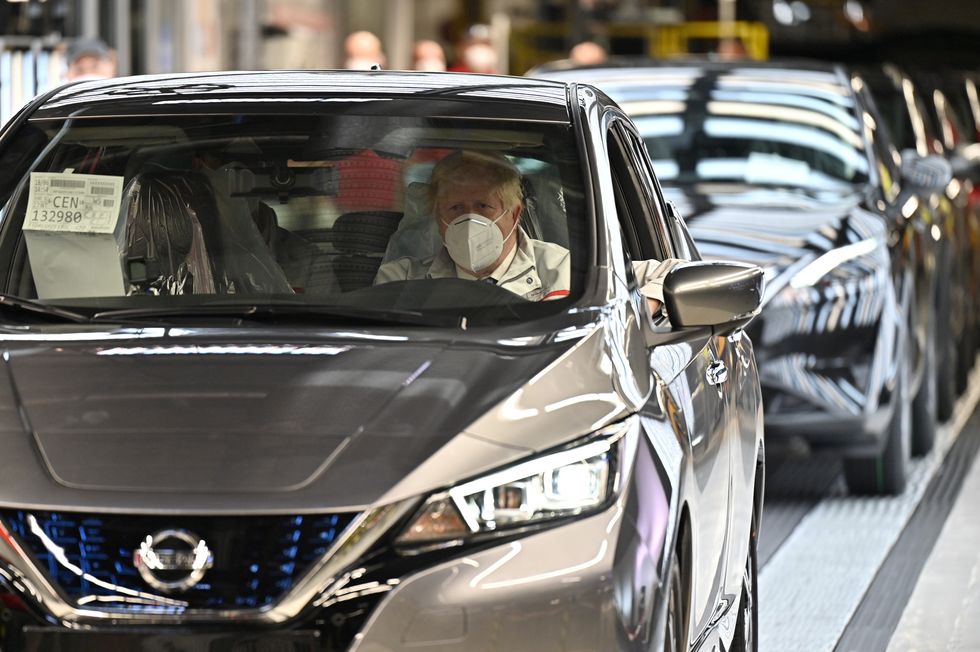
The brand aims to launch a number of new electric cars before 2030
PA
The announcement comes less than a week after the Prime Minister delayed the car sales ban
Don't Miss
Most Read
Trending on GB News
Car manufacturing giant Nissan has pledged to go ahead with its all-electric plans despite the rollback of the 2030 petrol and diesel car sales ban.
The Japanese brand said all new models in Europe would be entirely electric by the end of the decade.
The Prime Minister said consumers should be able to make the decision to buy an electric car and the Government should not “force” people to do it.
WATCH NOW: Reaction to Rishi Sunak's net zero pledge
He highlighted how electric car costs are reducing, the range is improving and the charging infrastructure is growing, but said the upfront cost was still an issue for families.
The decision was met with mixed responses from industry experts and drivers, with some highlighting how the UK is now in line with other major economies, while others believed it would slow the uptake of electric cars.
The company confirmed that it would be “pressing ahead with plans to achieve 100 per cent EV [production] in Europe by 2030, with all new Nissan models from now to be all-electric in Europe”.
Makoto Uchida, Nissan president and chief executive, said: “There is no turning back now.
“EVs powered by renewables are key to us achieving carbon neutrality, which is central to our Ambition 2030 vision.
“Nissan will make the switch to full electric by 2030 in Europe – we believe it is the right thing to do for our business, our customers and for the planet.”
Before the self-imposed 2030 deadline, Nissan hopes to introduce 19 full-electric models and eight hybrid cars, the Guardian reported.
Further proposals include the rollout of “cobalt-free” technology to bring down the cost of EV batteries by a staggering 65 per cent.
Many companies are striving to create batteries with a far quicker recharge time, with Nissan doing the same.
With the aim of launching in 2028, Nissan hopes to manufacture a battery that can cut the time it takes to charge a car by one-third.
The Yokohama-based company also pledged to spend £35million on the Nissan Design Europe building in London, with the brand celebrating the 20th anniversary of its opening.
This will boost the number of staff, accelerate the development of technology and upgrade the facilities on site.
Nissan has held a presence in the UK for decades, with its Tyneside manufacturing plant supporting the jobs of 6,000 people.
Some of the brand’s most popular vehicles are produced at the Sunderland plant including the Qashqai, the Juke SUV and the ground-breaking Nissan Leaf.
LATEST DEVELOPMENTS:

The Nissan factory still produces three of the brand's most popular cars
PA
As part of a previous £1billion investment in the production plant, Nissan will launch two new EVs, with one dubbed to be a successor to the popular Micra model.








